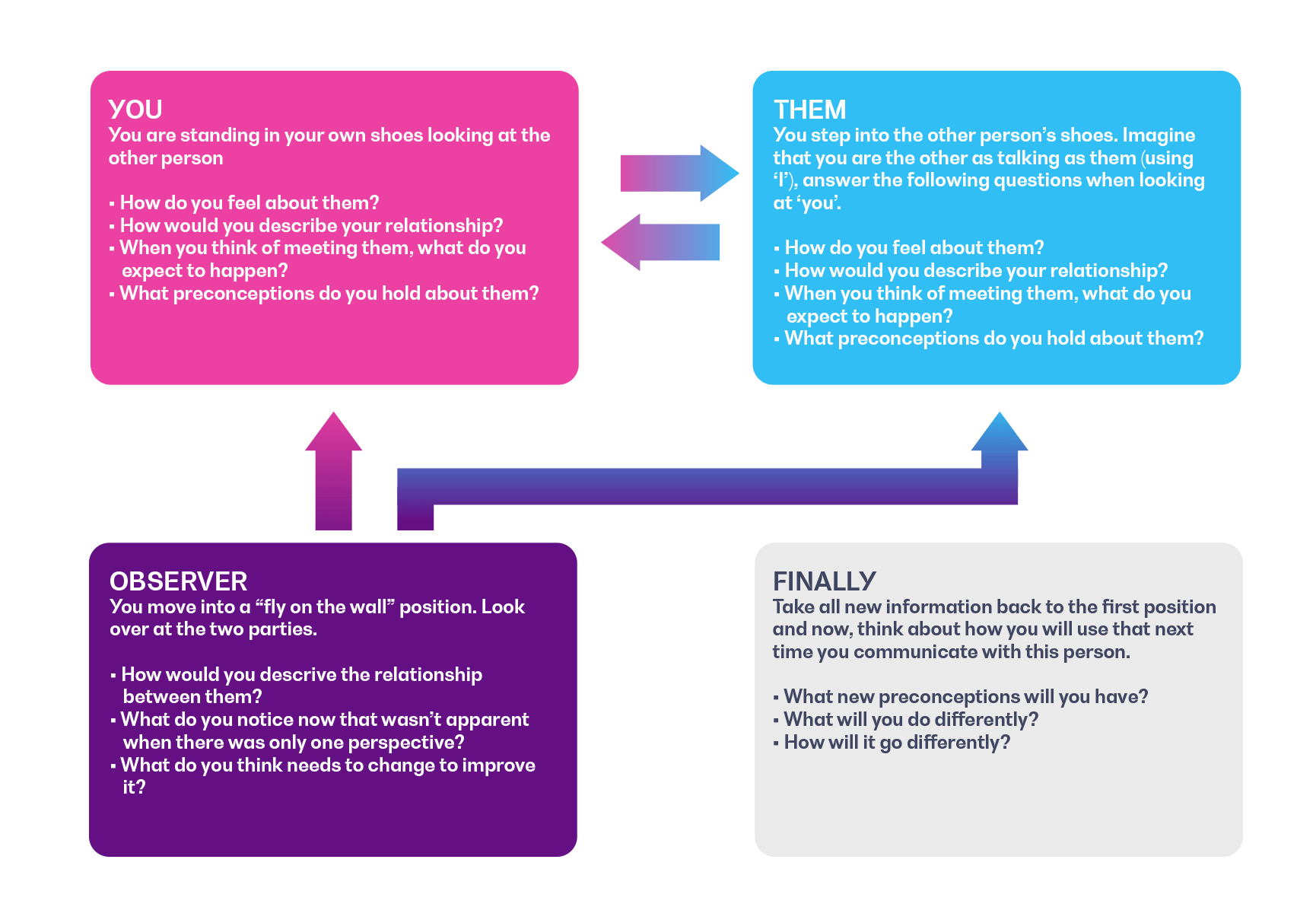About Intervention Management
The best form of managing conflict is prevention. Using what you now know of preconceptions, setting outcomes and rapport you should manage to avoid having ‘confrontations’ most of the time.
However, there may be the odd occasion when:
- You need to make a point directly with someone
- There is a ‘clash of personalities’ in your team
- Repeated coaching or general day-to-day management has not affected the behavioural change needed, and you have to request a concrete change
- You encounter a particularly ‘difficult’ advisor, etc.
If you know that you are likely to have a ‘confrontation’ with someone, there are several steps you can run through quickly to get yourself into the best frame of mind before you meet them.
Intervention Management Checklist
Below is a helpful checklist you can use in preparation before a meeting:
Check your preconceptions and beliefs about the situation and person
What makes you think that it will be confrontational? If you are approaching it expecting it to be difficult, it is much more likely to be. The opposite is therefore true: go with the expectation that the situation will go smoothly, and it is more likely to happen.
How would you like it to go ideally?
The clearer you are about how you want it to go, the more likely it is that your behaviour and the outcome will follow.
Make sure you pay great attention to establishing and maintaining rapport – both physical and with your language
Making sure you stay in rapport sends messages of cooperation to the other, helping to facilitate the discussion of any trickier points.
Have you talked through the issue, or worked it through yourself?
This helps to uncover deeper issues as well as moving towards a solution.
Have you considered it from their point of view? (See next section, stepping into the other person’s shoes)
Have you tried negotiating with them, or mediating?
Are you confident and direct when making a request?
Changing Perspectives
This technique uses different points of view to analyse challenging relationships in order to draw out feelings and insights that increase the ability of managers to influence the reactions and behaviours of others. Most people are familiar with what is referred to as ‘First’ position (their own point of view), highly empathetic individuals are equally aware of ‘Second’ position, and strategic thinkers also understand the importance of ‘Third’ position.
The ability to rotate between all positions, often rapidly and in the moment, enables managers to form a holistic and balanced view of a difficult situation. A comprehensive appreciation of how other parties may see things means that a manager is better equipped to prepare their case for change by honing and optimising their rationale and arguments.
This simple technique usually throws up many new insights about difficult interactions that can be key to resolving the issue. Once practised, it becomes possible to run through this mentally whenever needed.



